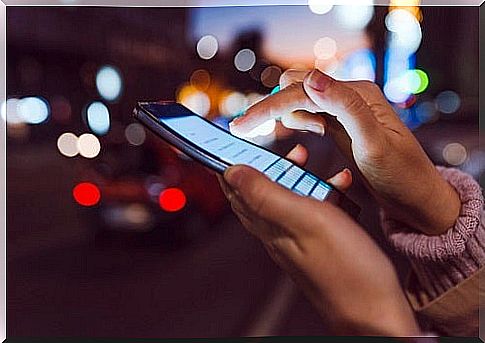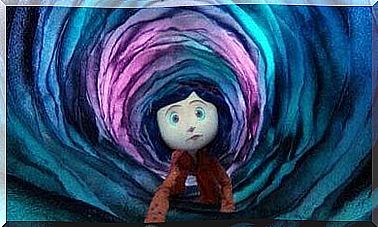Digital Autobiography: The Mobile Phone Knows Everything About Our Life

There is someone who knows us as well as we do: our cell phone. We don’t notice it, but in reality that device is an extension of us and could say things about us that would even make us blush. In every interaction, in every Like, photo or conversation , it creates an authentic digital autobiography to form a kind of black box of our life.
When we download an application, our reality changes and we are not always aware of it. Interest and shares will be recorded by well-calibrated algorithms oriented towards a single purpose: to make a profit, to monetize. Daily life is recorded and processed with highly sophisticated methods. We are constantly read, observed and analyzed to draw conclusions about who we are.

What is digital autobiography and how our cell phones get information about us
As soon as we buy a mobile phone and connect to Google, a parallel and invisible dimension opens up before us. We don’t notice it, we don’t feel it, but from that moment there is a whole army of “spies” recording everything we do. We give them permission to do so, because in exchange for using this application, we sell our data by accepting their disguised surveillance and treatment of our private data.
The research work carried out in the Computer Science department of the University of Southampton (UK) indicates something important. The existing privacy guidelines and approaches in these contracts are inadequate and incomplete: there are aspects of which we are not aware.
Lifelogging or the mechanism of collecting vital data
It’s called lifeloggings recording data from our devices on our daily activities. It is a complete, continuous and highly sophisticated process of recording everything we do (and also what we don’t do).
Our digital spies obtain data through every application and do it 24 hours a day, 7 days a week. These are imposing themselves and together shape our digital autobiography. But how do they do it?
- We think of smartwatches that record our movements and our lifestyle. They know how many hours we sleep, our eating habits, they know our heart rate, the state of our heart and even the messages we send.
- Some apps help women record their menstrual cycles or know their fertile days to conceive.
- We also have apps that track our mood and give us tips on how to feel better.
- There are also applications that serve as a personal diary, which help us make the shopping list or which remind us of medical appointments.
- Let’s not forget the GPS location of our mobile phone and the recording of our positions.
- Google also keeps our photos. Most cell phones have factory programs that we cannot delete and that automatically save our personal photos in that virtual cloud.
Social networks and our digital autobiography
Mobile applications are the most voracious collectors of our daily personal data or lifelogging. However, we cannot leave aside the absolute queens of this data marketing: social networks. For example, most of us have seen how Facebook regularly reminds us of some moments from the past, publications from previous years.
All of our experiences, interactions, shared information or published thoughts are recorded by these large companies. The same goes for Instagram, Twitter or any other social network. Each uploaded photo or published data is captured, recorded in a few milliseconds and stored in large data centers, hidden in the most unexpected places on our planet.
There is also another very interesting fact. Our digital autobiography remains beyond our death. Companies like Microsoft, for example, have created a program capable of recreating the life of a deceased person starting from his publications on social networks.

The risks of storing all our personal data
It is true that those memories on Facebook, about what we did 2 or 8 years ago, in many cases awaken a positive emotion in us. It is also true that we can no longer conceive our daily life without these auxiliary resources, without that extension of the body which is the cell phone and which, in some way, makes our life easier, more productive and even happier.
However, all of these benefits come with a price and a downside as well. Part of that digital autobiography is never really ours. We have become mere commodities. There is an artificial intelligence behind us that studies us and even tries to predict our behavior. And all of this is geared towards economic ends.
Let’s not forget that private data can be exposed. The theft of private data to blackmail or create defamatory policies is commonplace. We are undoubtedly facing a very complex reality which for the moment is neither legislated nor regulated. In the meantime, do we continue to be part of this “Matrix” because we simply can’t conceive of another way of life?









